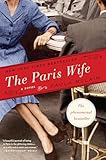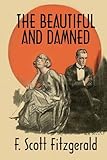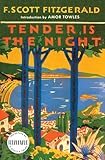

 I am consistently drawn in, and consistently disappointed, by bio-novels about women made unhappy by famous men. I read The Paris Wife, about Hadley Hemingway. I read Loving Frank, about Frank Lloyd Wright’s mistress. I read the diaries of Sofya Tolstoy. And now I’ve read Z: A Novel of Zelda Fitzgerald. I put each of them aside a heavy sigh when I’ve finished. I’m not disappointed in the books, but in the lives of the women. The point of these books is to tell their side of the story, but in reality, and definitely in Zelda’s case, they didn’t get their own side of the story.
I am consistently drawn in, and consistently disappointed, by bio-novels about women made unhappy by famous men. I read The Paris Wife, about Hadley Hemingway. I read Loving Frank, about Frank Lloyd Wright’s mistress. I read the diaries of Sofya Tolstoy. And now I’ve read Z: A Novel of Zelda Fitzgerald. I put each of them aside a heavy sigh when I’ve finished. I’m not disappointed in the books, but in the lives of the women. The point of these books is to tell their side of the story, but in reality, and definitely in Zelda’s case, they didn’t get their own side of the story.
Z follows Scott and Zelda from their courtship in Zelda’s native Montgomery, Ala., to their newlywed years in New York and then the long spiral into unhappiness via Paris, the Riviera, Hollywood, Maryland, and a few mental institutions. Although there are sweet moments in the beginning, the narrative quickly devolves into a “party, fight, repress, repeat” structure. The only thing that changes is the subject of the fight, but even that doesn’t vary widely.

 On its own, it’s not a compelling story. What makes it noteworthy is that these are the parties and fights experienced by the man who wrote The Great Gatsby, and this is the woman he made unhappy. Zelda had aspirations in painting, dancing, and writing, and showed promise in each. Scott prevented her from pursuing painting and dance beyond hobbies, and when she did write short stories or essays, they were published under his name (to ensure acceptance and higher payment). When she finally published a novel, Save Me the Waltz, under her own name, Scott edited out all the parts that made him look bad, and the novel failed.
On its own, it’s not a compelling story. What makes it noteworthy is that these are the parties and fights experienced by the man who wrote The Great Gatsby, and this is the woman he made unhappy. Zelda had aspirations in painting, dancing, and writing, and showed promise in each. Scott prevented her from pursuing painting and dance beyond hobbies, and when she did write short stories or essays, they were published under his name (to ensure acceptance and higher payment). When she finally published a novel, Save Me the Waltz, under her own name, Scott edited out all the parts that made him look bad, and the novel failed.
In the book, Zelda refers to her novel as “another failed endeavour.” In Therese Anne Fowler’s eyes, it’s another “what if?” What if she hadn’t let Scott edit her novel? What if she had become a professional dancer? What if she didn’t have to move every time Scott alienated another group of their friends? What if she hadn’t married him at all? Would her life have been easier, more fulfilled?
Fowler’s novel asks these questions, but can’t answer them. Nothing can, because we only have the story of what actually happened. These books about Hadley and Sofya and Zelda ask us to imagine how much easier their lives would have been if they’d had their own stories. At one point in the book Zelda asks herself, “Whose life is this anyway?” Not hers, is the answer.

 There’s a lingering myth that even if it’s stormy, it’s something of a privilege to be married to greatness, that letting your life be subsumed by an artist’s is a beautiful sacrifice to what he creates and a chance to be immortal. It is true that without Zelda, we wouldn’t have Gatsby, Tender is the Night, and The Beautiful and Damned — after all, she’s in those books — but it’s another matter to assume that she was content to sacrifice her happiness for three great novels.
There’s a lingering myth that even if it’s stormy, it’s something of a privilege to be married to greatness, that letting your life be subsumed by an artist’s is a beautiful sacrifice to what he creates and a chance to be immortal. It is true that without Zelda, we wouldn’t have Gatsby, Tender is the Night, and The Beautiful and Damned — after all, she’s in those books — but it’s another matter to assume that she was content to sacrifice her happiness for three great novels.
Fitzgerald and Zelda were a complicated couple, and Fowler illustrates how they could love each other, make each other crazy (sometimes literally), and despite the turmoil stay together. Fowler doesn’t show Zelda simply as a miserable wife, or as someone who was happy to live in service to Fitzgerald’s work, but rather as a wife who “was fighting for my right to exist independently in the world, to realize myself, to steer my own boat if I felt like it.”
Paradoxically, this is the reason to write and read about Zelda, because she deserved a life much more interesting than the one that she got. Interesting to her, that is, a life she could have given her energy and talents to, not just a life made interesting by famous friends and European capitals. Fowler’s intricately drawn portrait of Zelda is less a titillating story than a museum of untapped potential. We can never know what that potential might have lead to, but we can look on as she carries it with her through life, as it slowly becomes too late.
What disappoints me about the lives of Zelda, Hadley, and Sofya is that they’re museums of untold stories rather than legitimately good stories. They were all remarkable women who thought that marrying remarkable men would, naturally, make their lives remarkable. But repeatedly anything great in their husbands’ lives came at their expense. I am continually drawn to them out of a sense of responsibility, or penance, a feeling that someone should look and appreciate what they gave up.









